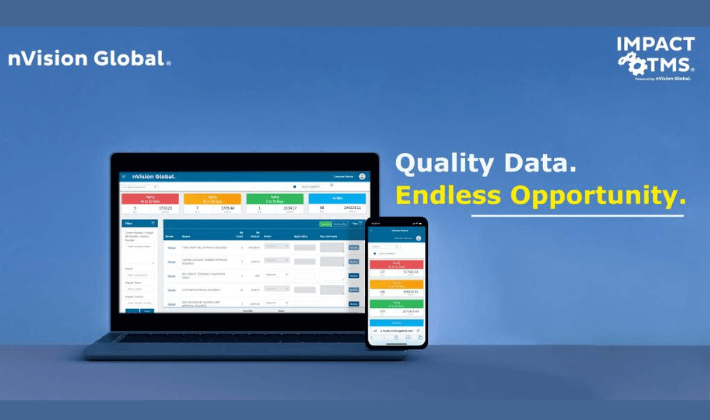
Once governed by dollars and cents, freight transportation has quickly become an industry ruled by pennies. As supply chains around the world become tighter, enterprise shippers are forced to squeeze every penny out of their freight operations. Consolidating costs, expediting invoice reconciliation, and managing rates and fees are all of paramount importance. This, in turn, has elevated the importance of Transportation Management Systems (TMS).
Today, it’s imperative for enterprise shippers to have a TMS that enables stringent freight operations, minimizing costs while maximizing efficiency.
A Good TMS is Priceless
Freight efficiency is a numbers game. The ability to quickly audit invoices or optimize load matching isn’t just a convenience for shippers — it’s the gateway to cost savings that flow directly to the bottom line. Being able to achieve a cost reduction of 0.5% here or 1% there through efficient operations builds incremental value. A TMS is the medium to engineer these savings.
A TMS takes the many silos of freight data and brings them together, using variables A, B, and C to produce cost savings of X. Shippers can tap every variable for value, pinching pennies that add up. It’s enough to offset things like rising rates, shipping disruptors, and the cost of doing business within particular regions or industries.
Cost Savings through a TMS
The cost savings capable through a TMS take many forms, and not every variable can be tapped every time. For example, if shipping rates are locked at a less-than-amenable rate, it’s up to shippers to uncover cost savings elsewhere — through load consolidation, for example. There are also bottom-line costs to consider, like freight auditing. A TMS brings together broad invoicing data to expedite the auditing process, helping shippers reconcile quicker and recoup otherwise lost costs.
The sheer availability of data is what’s valuable for shippers. Instead of combing spreadsheets for things like rate data, a TMS enables shippers to set criteria and quickly narrow their scope of providers to ensure the lowest rate. Similarly, bidding pools become broader, with more opportunities for cost savings.
Paving the Way for Smarter Supply Chains
Global supply chains are tighter than ever, which means it’s important for shippers to be smarter than ever. A reliable TMS is just one piece of a broader smart supply chain — one that leverages big data, cloud technologies, and machine learning to unlock optimizations never before available to shippers.
Smart supply chains are the solution to increased competition and the costs that come with globalized innovation. Shippers need to adapt their processes and approach to compete. And though it might seem like a race to the bottom in terms of price, it’s actually an arms race to see who can harness data to their advantage in a real, tangible way. A TMS is the first and best place to start.
